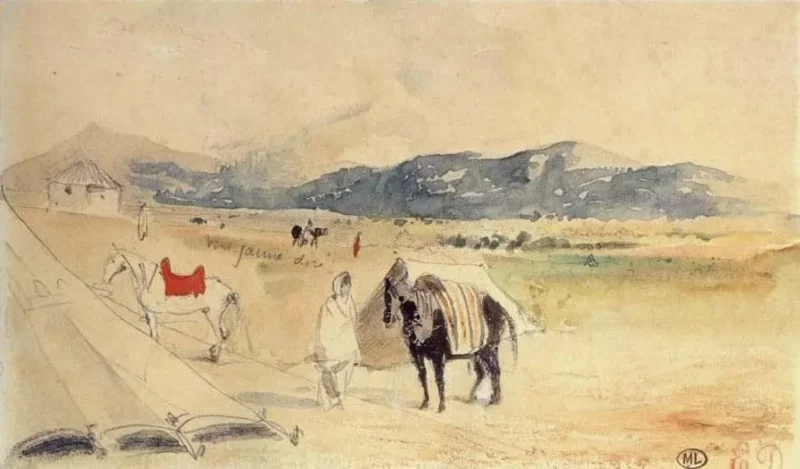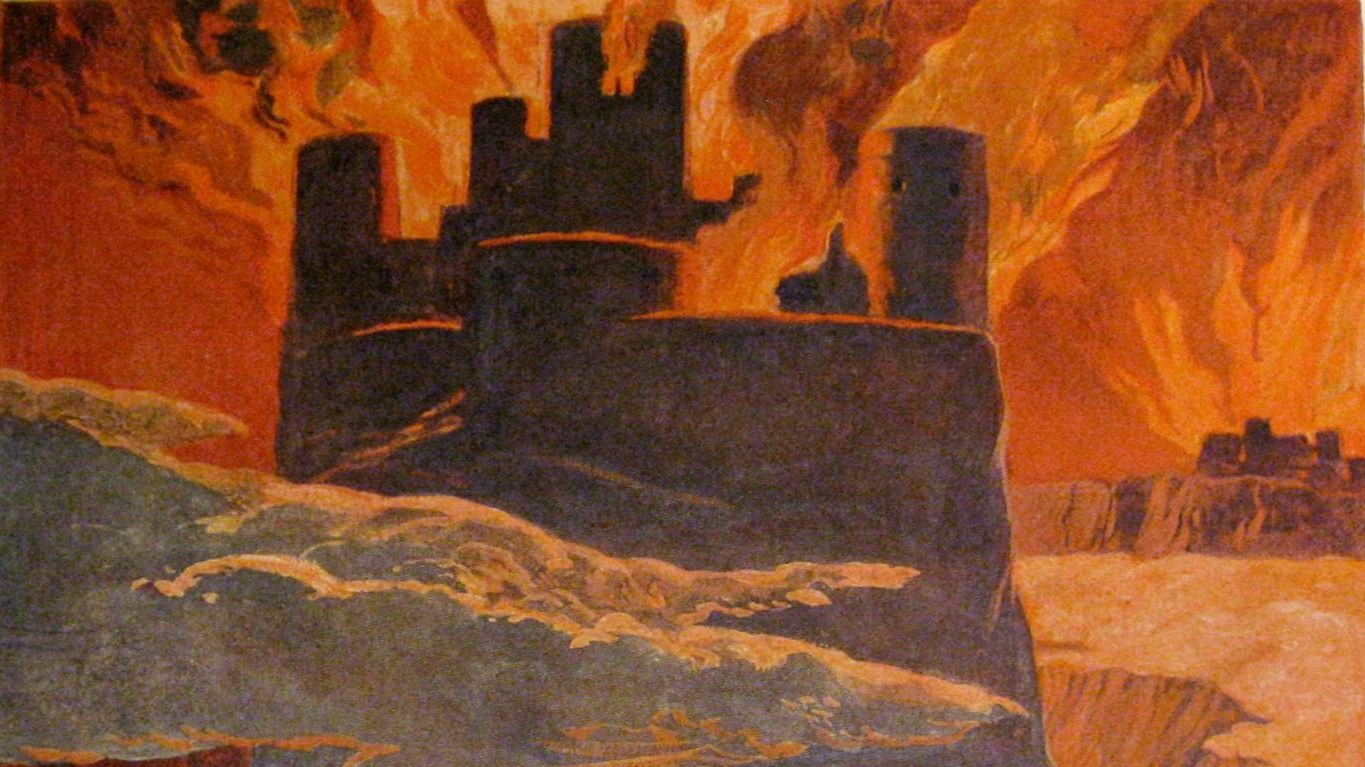Africans remember the Soviet Union, are “fed up” with colonialism and hope for Russia
The first African International Congress was held in Moscow on April 5-6 as a working platform for government and business representatives. The event aims to develop cooperation between Russia and African countries in areas such as investment, transport, culture, sports, and education.
The director of the investment agency Afroinvest and a member of the organizing committee of the African international congress Dmitry Veselov gave an interview to Rossa Primavera News Agency about prospects and possible problems on the way of rapprochement of Africa and Russia.
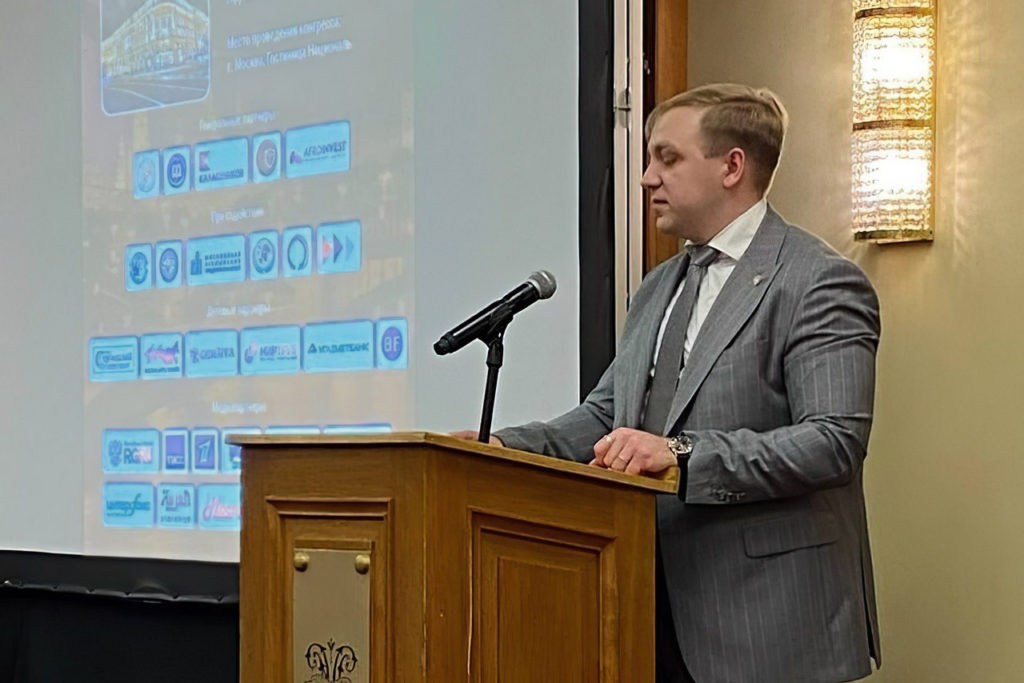
© Yevteeva Darya
Rossa Primavera News Agency: How big is the potential of African markets for trade and investment?
Veselov: The investment potential of Africa is enormous. If we take the state of the markets in terms of profitability, prospects, and opportunities, it is like Russia in the 90s. That is, if you compare it with what we have now, we had nothing then. This is the first thing.
The second point: the key factor of potential is a huge number of young people, the share of which is constantly growing. There is potential in itself in terms of markets, population, and an enormous potential at the expense of young people.
And naturally, there are excellent prospects due to the fact that telecommunications, communications and other things are developing. The growth rate of some economies is about 4-6% a year or more.
Rossa Primavera News Agency: What is the currency of trade payments with Africa and how are they made? If in rubles, what is the scheme?
Veselov: Trade payments with African countries are not made in rubles. Trade is done in dollars, euros, and so on. In Africa, they basically sell everything for dollars, especially basic goods. In other words, roughly speaking, there are no direct payments between our side and African countries at all.
I will go even further: there is not even a single Russian bank in Africa. Not a single Russian bank has correspondent accounts with local banks.
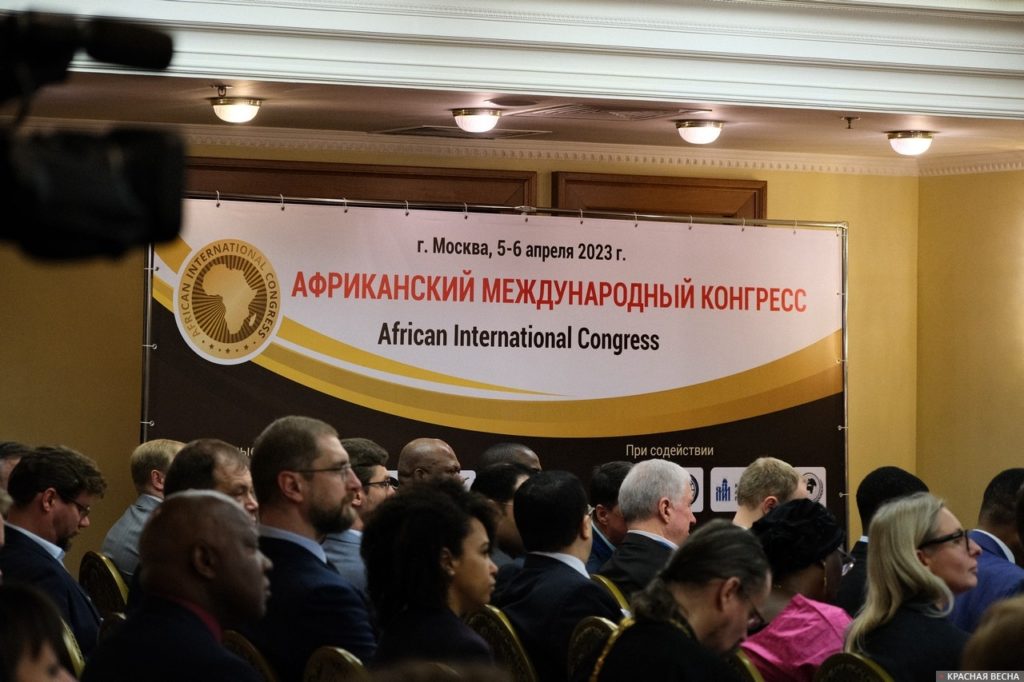
Grigoriy Karpov © Rossa Primavera News Agency
It is important to note that Africa also has a huge need to modernize outdated industries and create new ones. That is, in fact, they need real catch-up modernization.
They are still in the stage of colonialism to a greater or lesser degree now, especially financial colonialism. For example, Societe Generale Bank in West Africa has, I think, almost three hundred or more offices and representative offices.
African businesses can be many times more profitable than Russian businesses in terms of profitability. Russian business is already mature in this sense. Profitability decreases as the markets become saturated. And there you can make the kind of returns on legal business in some areas that we only had in the nineties.
The markets are huge. Both in consumer goods, where a huge amount of everything is needed, and in investments. This is infrastructure, this is oil and gas industry, this is really everything that is related to digitalization, to technology. That is everything that countries need to get on the path of catch-up modernization.
From the oil and gas industry, mining of enormous mineral resources to education, medicine, IT, and communications – all these things will be profitable under the condition of a competent organization.
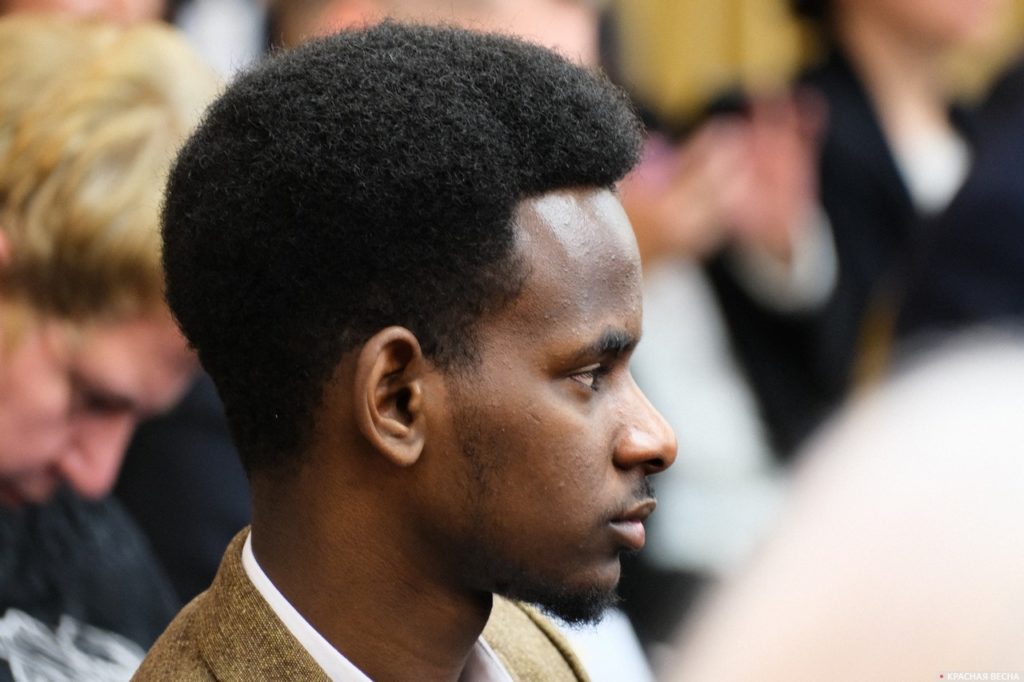
Grigoriy Karpov © Rossa Primavera News Agency
Rossa Primavera News Agency: China is actively investing in other countries, including African countries. Will Russia and China clash in Africa, and will this be healthy competition or fierce rivalry?
Veselov: It is a very interesting question about China. I think that it will be a healthy competition in a way. Because we will come to an agreement with China and divide our spheres of influence one way or another. But again, competition will be tough – this is a hundred percent.
What is the most important point here? The thing that Africans themselves are talking about: just at the forum, the Ambassador of Mauritius and others said that Africa is waiting for a new model of work with Russia, a new plan, a new approach.
Why? Because all Western countries and not only Western countries, China, for example, work with Africa according to the classic capitalist rules. Some of them follow non-classical ones: they are plundering on a large scale. But China, India, and others mostly prefer the classical way.
And what do Africans remember? They remember the Soviet Union. They remember it because the Soviet Union built its relations not only on economics, but also on outlook, on ideology, on approach to life, on principles of building social institutions. The attitude toward man, and the notion of man in general, was different. And this is what they remember. They do not fully realize it, but they remember it. That’s for sure.
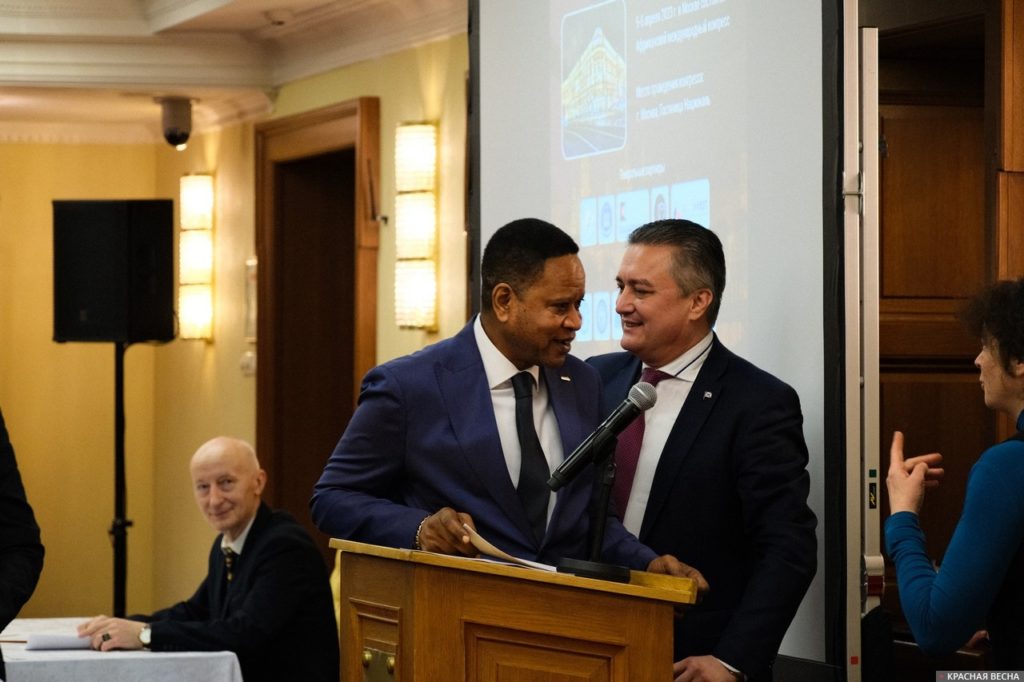
Grigoriy Karpov © Rossa Primavera News Agency
They want a different model. They have had enough of colonialism. Even now, they are fully experiencing “all the charms” of the classical capitalist relations with China, India and other countries. Russia has a huge chance: it has a considerable legacy of relations with Africa. I would even say Russia’s experience is an exceptional one: no one in the world has ever had such relations with Africa as we have.
We can call it the Soviet legacy. But it is fading away, it needs to be used, and it needs to be transformed into practical terms.
So if we do this, then China as a competitor will be completely disarmed. Because the Africans are waiting, they want to resume this relationship, which has been interrupted for thirty years.
To really win in Africa, to build even stronger, even better relations with Africa than we had in the Soviet Union, we ourselves need to bring back the ideology. This is the first thing.
And secondly, we need to create a new economic order based on this ideology, on a new humanism, on a new alternative path of development. Then we will have no problems building relations with the countries of Africa, we will win, we will be beyond competition in Africa.
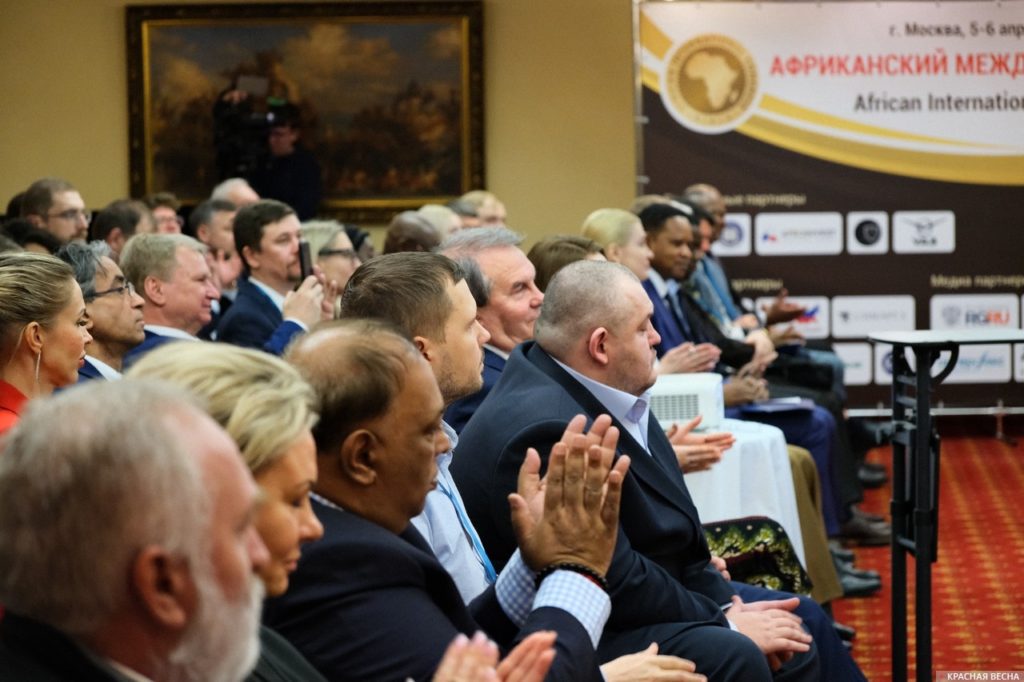
Grigoriy Karpov © Rossa Primavera News Agency
Rossa Primavera News Agency: What are the main problems on the way of economic rapprochement between Africa and Russia?
Veselov: I would even say that the economic problems, which may sound humorous, are the main economic problem on the way to rapprochement, which is a political problem. Because the countries of Africa have been subjected to intense pressure from the United States and the West in general.
First, a huge number of, shall we say, activities are carried out by the West, and we all constantly see trips there made by statesmen and other senior officials of the United States and Europe. This is essentially a tug-of-war: they want to persuade Africa to stop being friends with Russia and support the West. This is a key issue. And they are tens and hundreds of times more active there than we are.
But if you look at purely economic issues, there are probably three main problems. First, it is mutual payments: we need a single financial system – direct, without dollars. The second is logistics. And the third is direct flights. This relates to logistics, but all the same, most of the goods are delivered by sea. These are the things that cause many things to stall.
There are also some economic problems. Again, security for business and investment, the problem of conflicts and inconstancy of power in some countries.
There is also the problem of having some kind of unified information resource that would cover the situation in the right way and form a positive image of Russia and Africa. That is not just to say that everything is bad in Africa or, vice versa, that everything is good, but to show the real situation. The same is true of Russia.
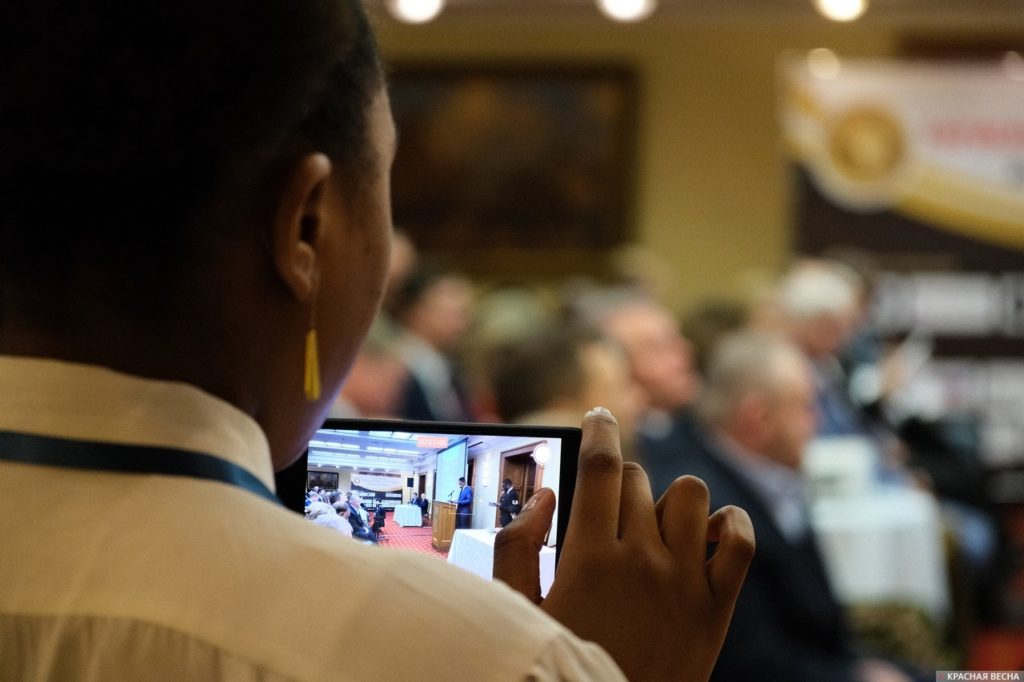
Grigoriy Karpov © Rossa Primavera News Agency
At the event, many African representatives said that Russia has a certain image of Africa, and it needs to be changed – it’s wrong. They say, “It’s not like there is violence, corruption, decay and other things; there are a lot of good things there.” It’s the same image of Russia in Africa – that we have poverty, high crime rate, and all that sort of thing.
It is necessary to create a гтшашув information portal, which will aggregate information from Africa and Russia and create the right image. That is, a kind of soft power is the right tool in the information war.
The battle of Africa in the informational field also exists and is underway. Russia needs to develop this information direction.
As a result of the current event, such agency Afronews will be created.
Among the economic problems is the lack of financial mechanisms or institutions to finance transactions between countries: bank guarantees and other instruments, and mutual recognition of banks and their instruments to support trade. A Russian-African Development Bank, for example, is necessary. It is absolutely necessary. And we will move in this direction.
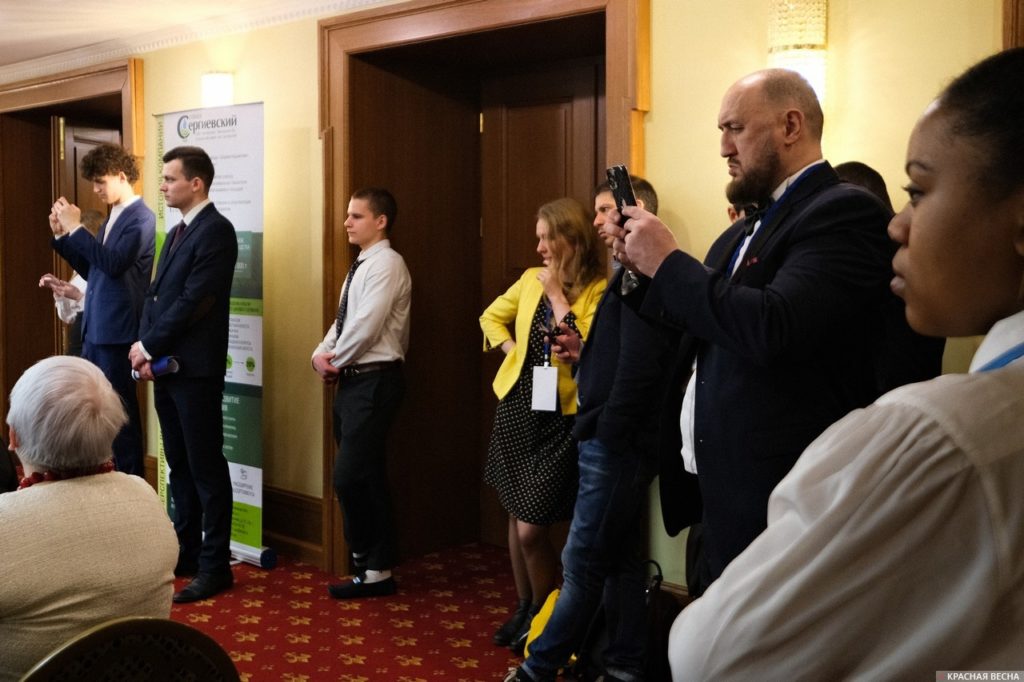
Grigoriy Karpov © Rossa Primavera News Agency
Rossa Primavera News Agency: Which African countries are the most promising for economic cooperation?
Veselov: If we take African countries, the classics are some of the most developed: South Africa, Morocco, Egypt, Algeria, etc. But more and more promising projects and directions appear in other countries: Central and West Africa: Ghana, Nigeria, Senegal, Benin, DR Congo, etc. And East Africa: Kenya, Ethiopia, Uganda, Zimbabwe, Mauritius, etc.
Rossa Primavera News Agency: How difficult will it be to circumvent the current Western sanctions, and could new sanctions undermine cooperation between Russia and Africa?
Veselov: The current sanctions are circumvented one way or another, but it all depends on political will. That’s for sure! The new sanctions, technically, of course, can have an impact, especially in terms of logistics and finances. In general, I have already partially answered this question above: some political will on the part of African countries is needed.
What will this political could be based on? On the real support from Russia. It must become obvious that Russia takes Africa seriously and will not leave, and that it brings an absolutely different agenda, another alternative project of development of Africa and a project of relations with Africa.
Right now, Africans are essentially caught between two fires, because Western countries are exerting all sorts of pressure, exciting all sorts of extinguished conflicts – interethnic and other in all regions.
This is why let’s say if they [African countries] say and do something, they’ll risk losing much. Especially, if Russia will confine itself to expressing support without providing it. And this is a very subtle point that needs to be controlled.
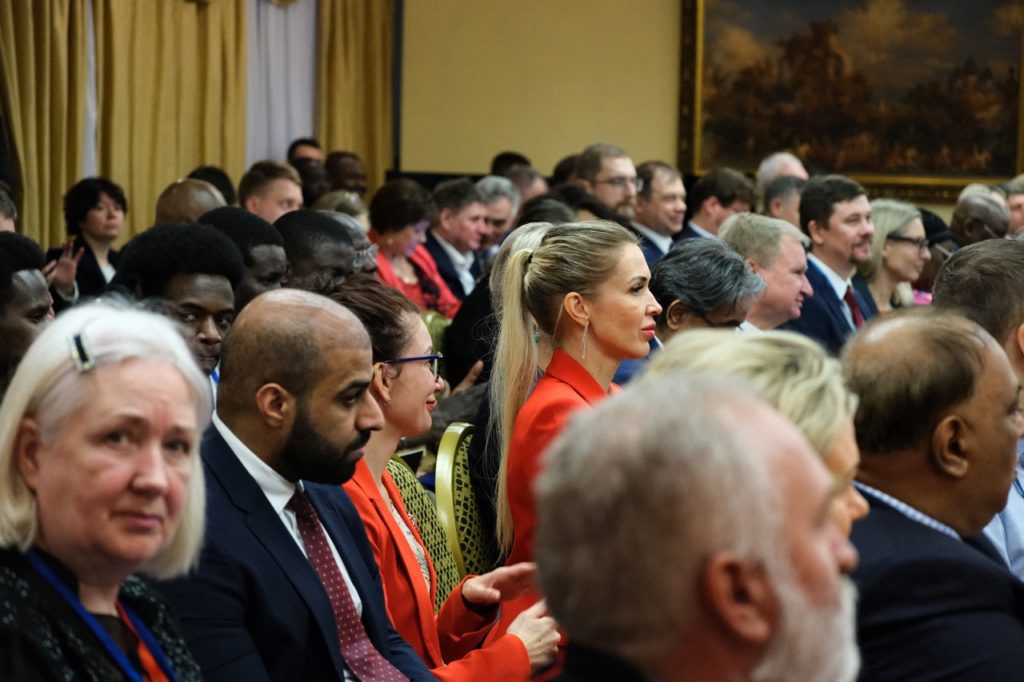
Grigoriy Karpov © Rossa Primavera News Agency
As our president and many top officials have stated, the second Russia-Africa Forum will be a breakthrough. Many agreements will be concluded, initiatives will be announced, and so forth. We hope that this will be the case, because so far there has been, to put it mildly, little activity since the last forum. Everything is mainly in the format of signing documents.
The important point is that since the collapse of the USSR, Russia has been following the capitalist track. The West, and now China and India are already working in Africa on the same capitalist principles. And what kind of competition can there be from Russia?
If we work with Africa in this same paradigm, we will lose. That is why Africans do not understand us, they say, “We know what the West is, we know all their rules, we have had enough of it all. But are you essentially offering us the same thing?”
There is a clear line here. Russia must offer an alternative model, and then it will win. Because in the current conditions, it is not Russia that sets the capitalist rules, but we are clearly inferior to China by many parameters.
In short, the Soviet legacy is a factor of the future for building long-term stable friendly relations with Africa.
Source: Rossa Primavera News Agency

